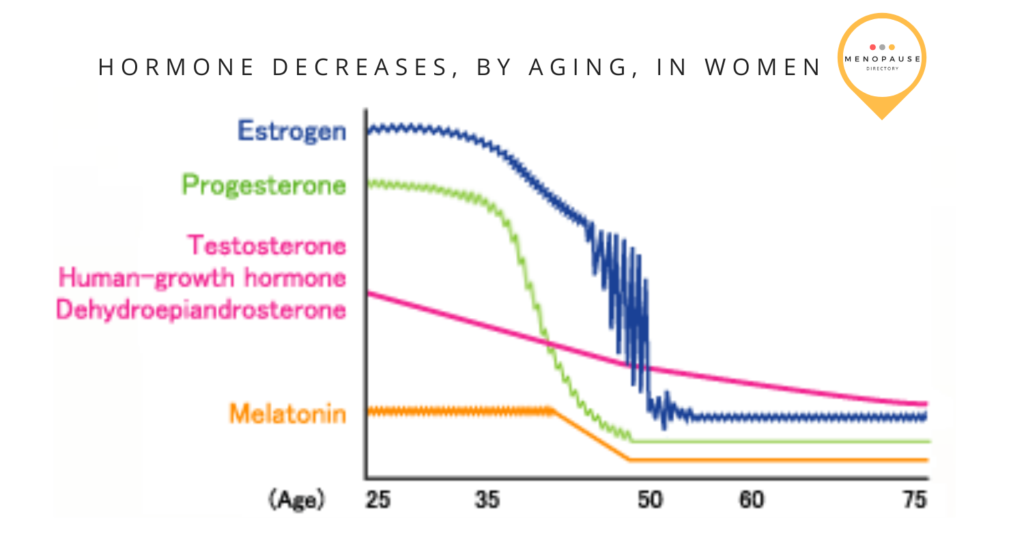When you consider that stress is defined as ‘being under too much mental or emotional pressure’ and then described by the medical profession as, “Stress affects how you feel, think, behave and how your body works, sleeping problems, sweating, loss of appetite and difficulty concentrating. You may feel anxious, irritable or low in self esteem, and you may have racing thoughts, worry constantly or go over things in your head. You may notice that you lose your temper more easily, drink more or act unreasonably. You may also experience headaches, muscle tension or pain, or dizziness.” – it’s quite easy to see how it would be confused with menopausal symptoms.
With all those symptoms that can affect our long-term health it’s also abundantly clear that we should avoid prolonged stress, and adopt techniques to mange our mental and physical well-being.
Biologically speaking when we are felt to be under stress our body instinctively increases our level of a hormone called Cortisol, which was originally designed to help our bodies mobilise quickly to remove us from a stressful situation (such as being chased by a man eating creature) called the flight, fight and fright response. Except these days, tigers and other instant life threatening situations are few and far between. But we do have instead in our modern day life, a very long time-line of obstacles that face us like a daily conveyor belt of tiger-shaped challenges. Cortisol levels remain higher for longer, and as a result we find ourselves in a permanent state of anxiety, which is not a good thing. On top of the emotional symptoms, elevated cortisol it is also known to increase fat deposition, which can lead to weight gain. (sound familiar with menopausal symptoms?)
So for clarity before we go any further let’s revisit the light bulb moment image of hormonal decline.

During your mid 40’s your levels of oestrogen and progesterone start to decline. 100% guaranteed, happens to every woman and there’s nothing you can do to stop it. This biological time zone is termed menopause. Some of the symptoms you may experience include: anxiety, insomnia, brain fog (difficulty concentrating), fatigue, mood swings, loss of confidence, sweating (hot flushes), aches and pains, headaches. You’ll see the similarity with stress symptoms, but what happens when you combine the two?
It’s well quoted by lots of people that during our 40’s we also seem to have a juggling ball act going on as a side-hustle with family and work commitments and a super-human wonder woman mindset. It’s then assumed that because of our chosen time-table we then suddenly lack organisational skills and have a common sense by pass, no longer able to look after ourselves, turn to junk food and all those poor choices are directly responsible for our menopausal symptoms and we should ‘practise self-care’. I don’t know about you but I find that really rude. I’m a sensible forward-thinking woman and if I can run a business and keep my family functioning I think I’m pretty well equipped to make sound decisions on my nutrition and exercise. So, what’s the real deal here? What dots are we not joining?
Did you spot the bit where I said “cortisol it is also known to increase fat deposition, which can lead to weight gain”?
Here’s part two of that story. Cortisol is produced by the adrenal glands, a tiny little hat shaped gland on top of your kidneys which also produce other hormones, one of which is oestrogen. As our oestrogen levels decline and the ovaries producing said oestrogen start to reduce their out put, our bodies attempt to make that curve smoother by finding two other sources. 1. They ask the adrenal glands to add some more oestrogen into our systems and 2. We save some for later in our body fat and move it to our middle.
OK so what do we have here now … the stress, menopause weight gain recipe! I have simplified the process for dramatic effect, because these hormones do oodles of things that I’ll save for another day. But basically you don’t put on weight during menopause because you suddenly ate all the pies and stopped exercising because you lost will power. But clearly if you have done either, now is a good time to stop.
The bottom line is this – if you are not managing your stress, which increases your cortisol levels, and when the time comes to support your declining oestrogen your adrenal glands are already pretty much maxed out, they are going to be as much use as a chocolate tea-pot. If your cortisol levels are high and you’ve started to hold on to your fat pre menopause transition and your body wants a safe place to store some spare oestrogen for later, do you really think it’s going to let go?
Reduce stress, reduce cortisol and thereby support your other systems. What’s the best known way to reduce cortisol levels? Exercise.
Managing menopause is a life-time occupation. It’s not a one-trick pony that pops up and then disappears. Pay attention to your health and invest in yourself so you can be the best version of you. That is true self-care.

